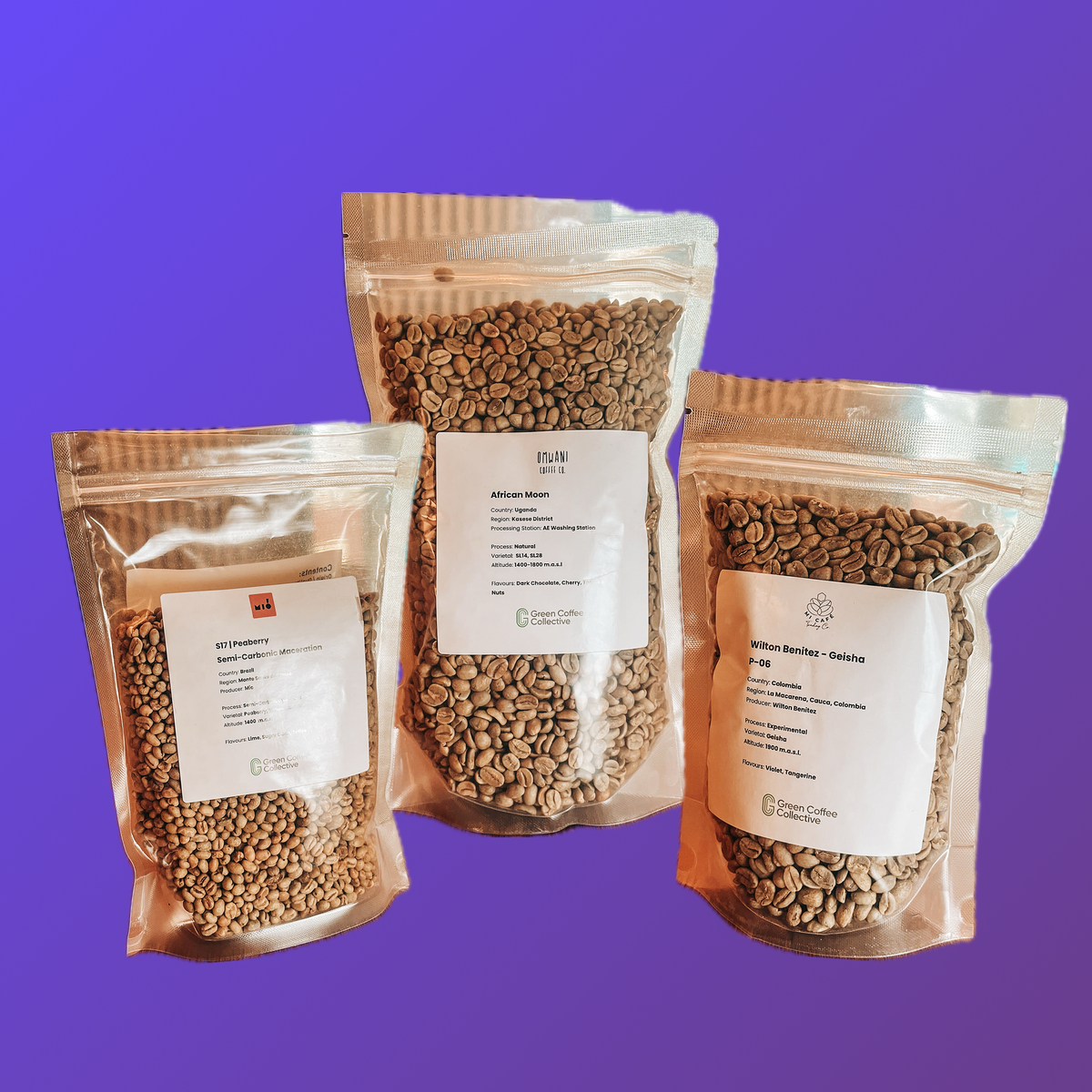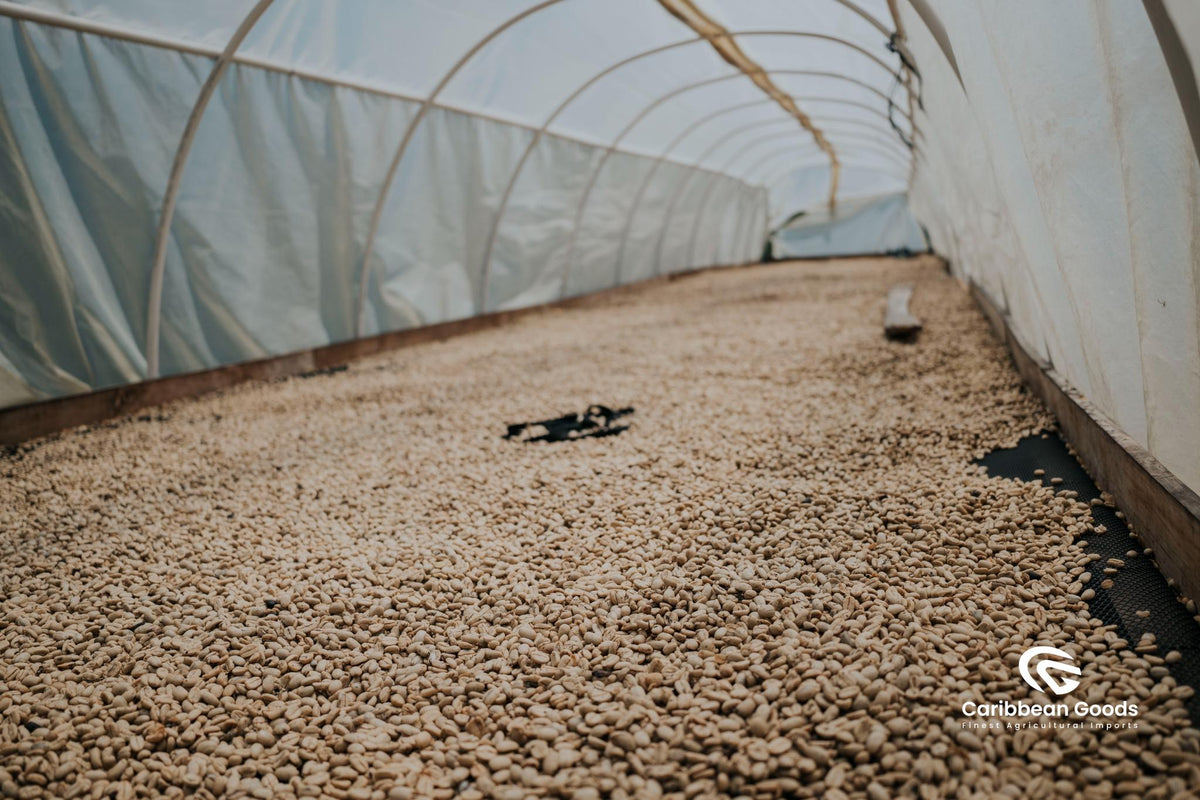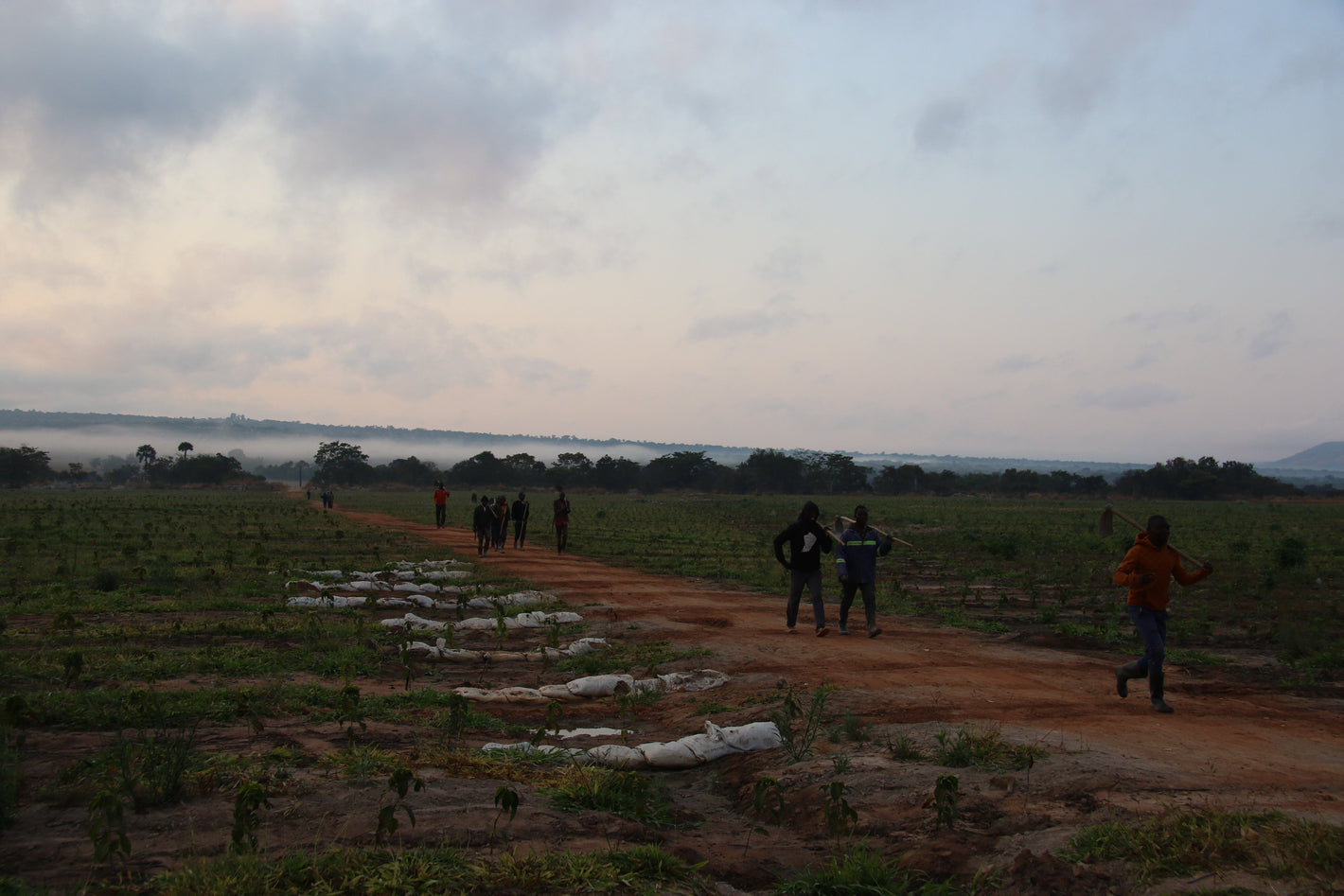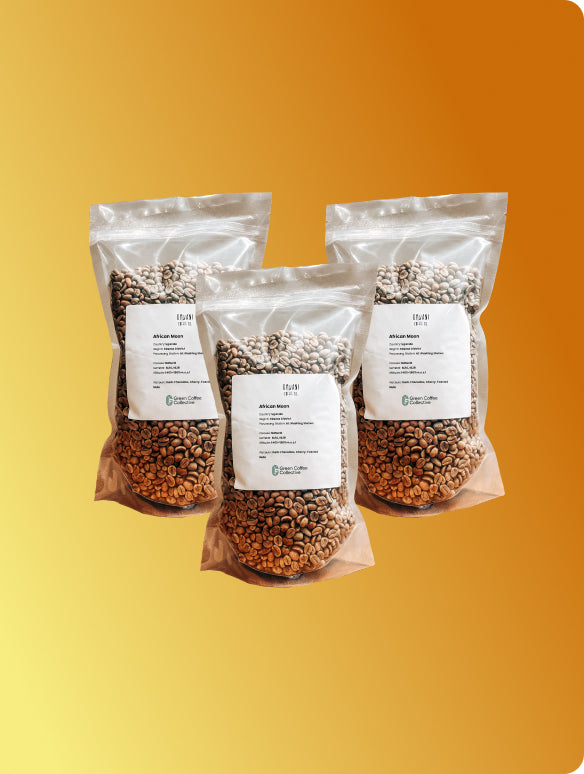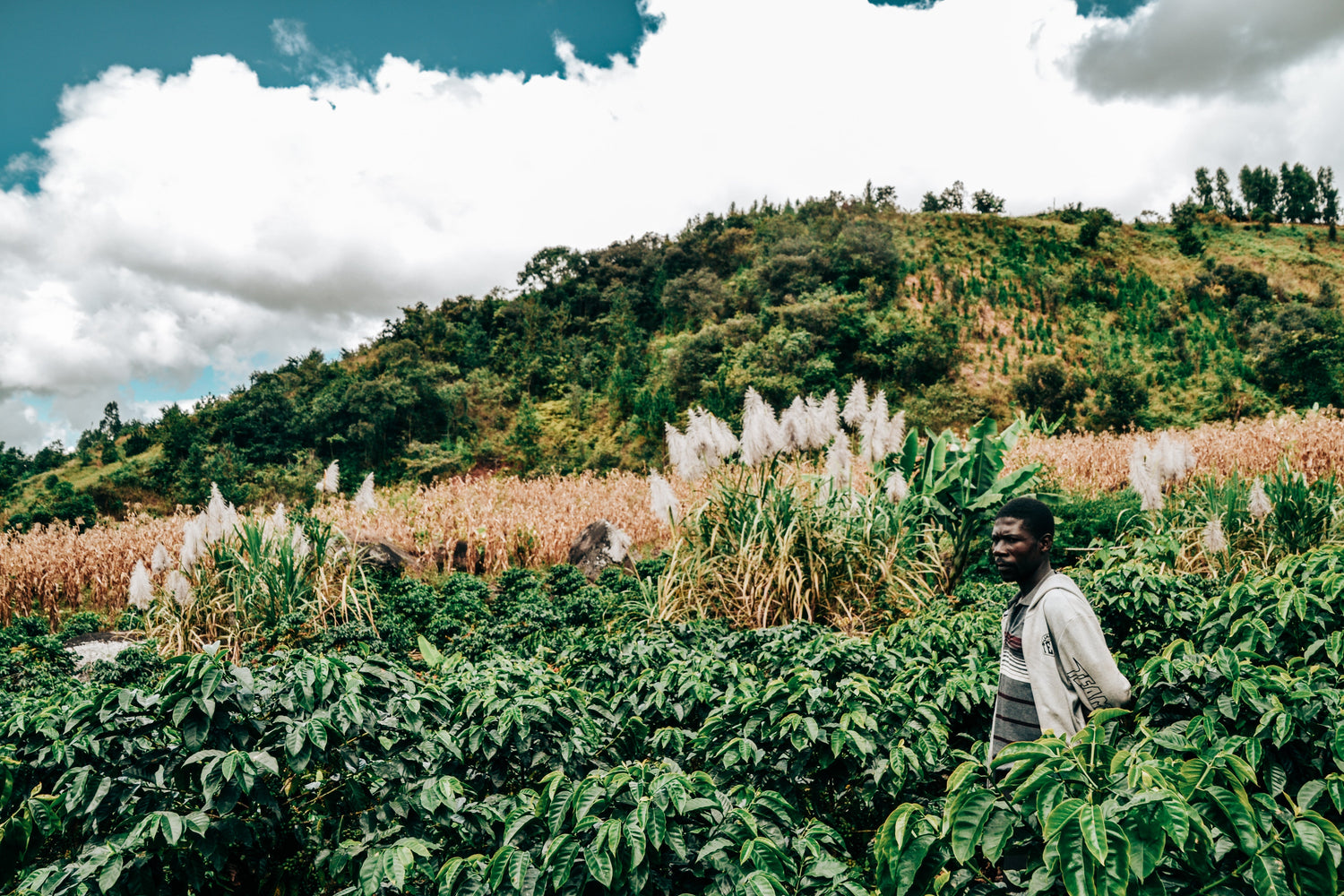
Malawi Green Coffee Beans
Malawi produces coffee on a small but meaningful scale, with most cultivation taking place in the southern regions of the country. Farms range from smallholder plots organised through co-operatives to a handful of larger estates that process both their own and locally sourced coffee. Lower elevations and varied varieties create flavour profiles that are gentle, sweet and often floral. While Malawi’s overall production has declined over recent decades, there is renewed interest in rebuilding quality and improving stability for farmers.
-
Explorer - Rolling Green Bean Subscription
Processing methodVarietalMultipleMain flavour notesVaries from each coffee
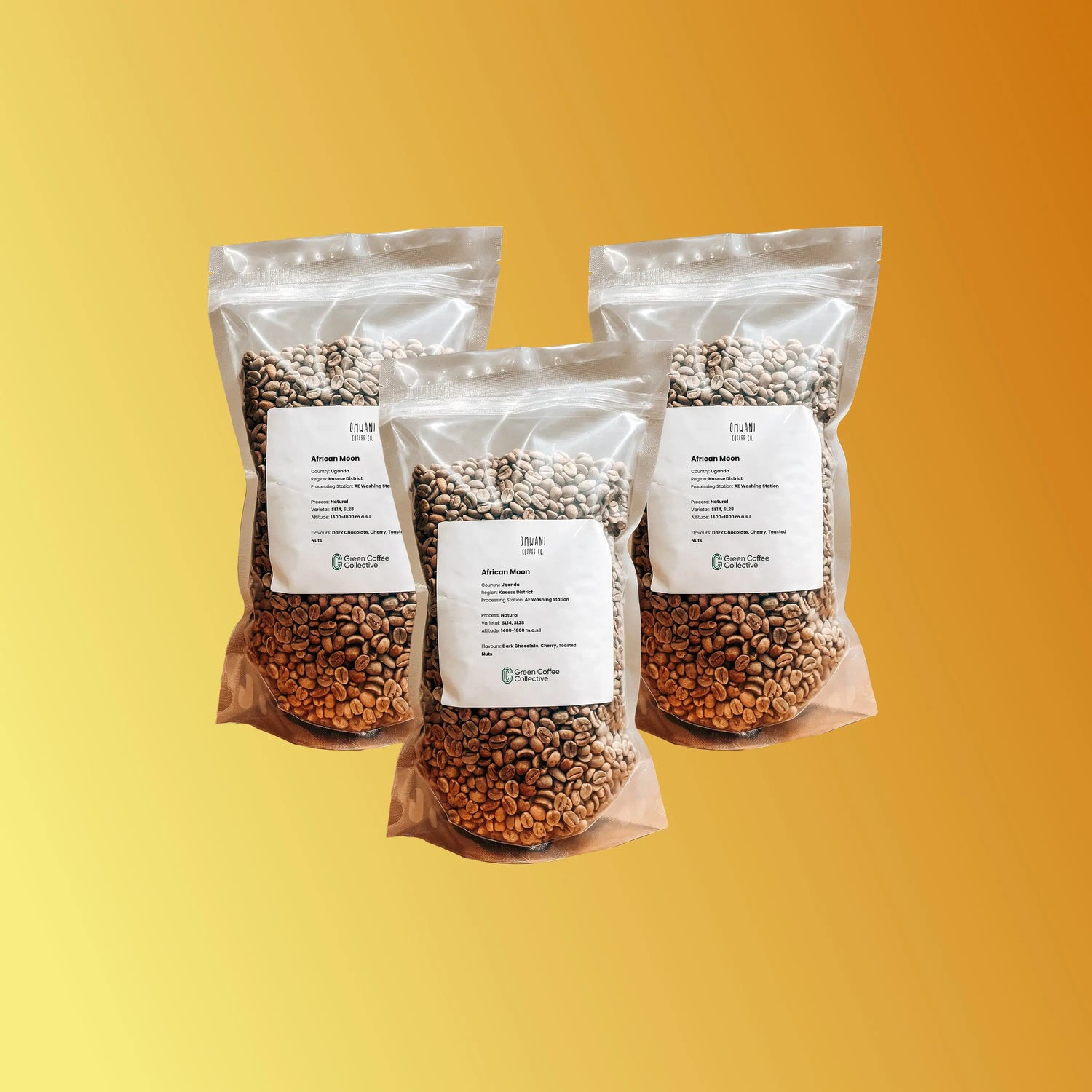
Your guide to Malawi Green Coffee Beans
-
What Makes Malawi Coffee Special?
-
What Is the History of Coffee in Malawi?
-
What varieties are grown in Malawi?
-
How Do We Source Coffee from Malawi?
